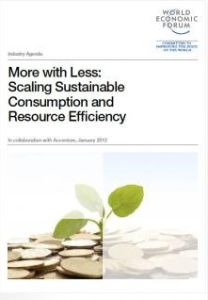Join getAbstract to access the summary!

Join getAbstract to access the summary!
Randall Krantz and Nijma Khan
More with Less
Scaling Sustainable Consumption and Resource Efficiency
World Economic Forum, 2012
What's inside?
How people can ensure that humankind doesn’t destroy the planet.
Recommendation
What can people do to ensure that the planet doesn’t run out of resources? Who is responsible for change? This report, written by experts from the World Economic Forum and Accenture, proposes solutions that make sense and seem feasible. Corporate executives pepper the pages with intelligent quotes and statistics, as streamlined graphs drive home points for the visually inclined. You may wish for less white space, fewer irrelevant pictures – like the stock shots of Wall Street and crowded cities – and more information from these extremely knowledgeable writers. getAbstract recommends this well-researched report to anyone concerned about current consumption trends and about how individuals, organizations and government can safeguard the future of the planet and the world economy.
Summary
About the Authors
Nijma Khan works in sustainability services for Accenture in the United Kingdom. Randall Krantz is a director at the World Economic Forum, where he leads its sustainability initiative.
















Comment on this summary